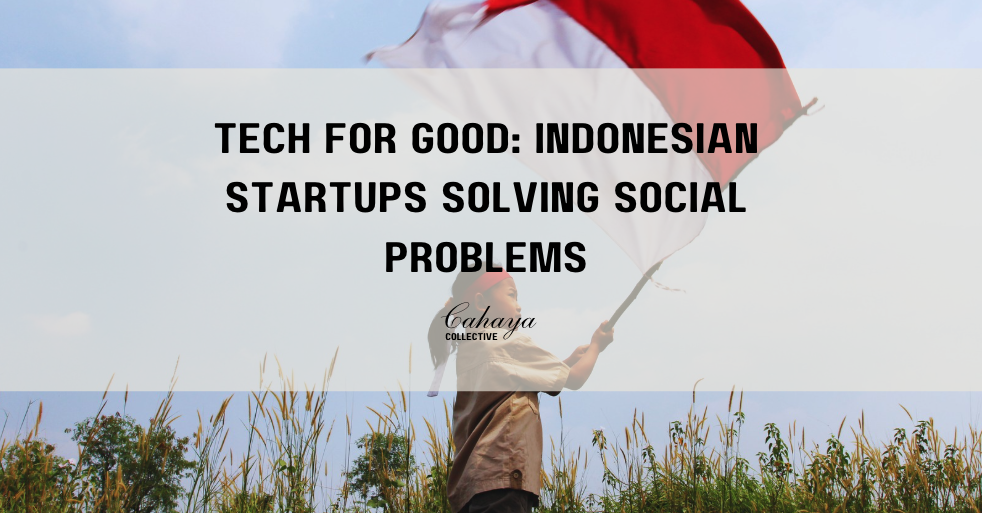
Crowdfunding Platforms: Fuelling Indonesia’s Startup Ecosystem
In recent years, Indonesia's startup ecosystem has seen remarkable growth, driven by innovation, entrepreneurship, and an expanding digital economy. One of the key drivers behind this growth is the rise of crowdfunding platforms, which have emerged as a crucial source of financing for startups. These platforms provide an alternative to traditional funding methods, offering startups the opportunity to raise capital from a diverse pool of investors. This blog post explores the role of crowdfunding in Indonesia’s startup ecosystem, the benefits and challenges of this funding model, and its impact on the country's entrepreneurial landscape.
The Rise of Crowdfunding in Indonesia
Crowdfunding Defined
Crowdfunding involves raising small amounts of money from a large number of people, typically via online platforms. It allows entrepreneurs to showcase their projects or business ideas to potential backers who contribute funds in exchange for rewards, equity, or simply the satisfaction of supporting an innovative project.
The Growth of Crowdfunding Platforms
Several factors have contributed to the rise of crowdfunding platforms in Indonesia:
- Digital Penetration: With over 200 million internet users, Indonesia’s rapidly growing digital economy provides a fertile ground for online crowdfunding platforms.
- Entrepreneurial Spirit: A vibrant startup culture and a growing number of young entrepreneurs seeking capital have fueled the demand for alternative financing options.
- Regulatory Support: The Indonesian Financial Services Authority (OJK) has implemented regulations to support the growth of crowdfunding while ensuring investor protection, thereby fostering a conducive environment for these platforms to thrive.
Leading Crowdfunding Platforms
Some of the prominent crowdfunding platforms in Indonesia include:
- Kitabisa: Primarily focused on social and charitable causes, Kitabisa has also become a platform for startups to raise funds for innovative projects.
- Santara: One of the first equity crowdfunding platforms in Indonesia, Santara allows investors to own shares in small and medium-sized enterprises (SMEs).
- Akseleran: A peer-to-peer lending platform that connects startups with individual and institutional lenders, facilitating access to working capital and growth financing.
The Role of Crowdfunding in Startup Financing
Access to Capital
Crowdfunding platforms democratise access to capital, enabling startups that may struggle to secure traditional funding from banks or venture capitalists to raise funds directly from the public. This has been particularly beneficial for startups in niche markets or those with innovative but high-risk ideas.
Market Validation
For startups, a successful crowdfunding campaign can serve as market validation. It demonstrates demand for their product or service and provides valuable feedback from early adopters. This validation can also attract additional investors or partners, further boosting the startup's prospects.
Community Building
Crowdfunding helps startups build a community of supporters who are emotionally and financially invested in their success. These backers often become brand ambassadors, helping to spread the word and drive the startup’s growth through word-of-mouth marketing.
Diversified Funding Sources
By raising funds through crowdfunding, startups can diversify their funding sources, reducing reliance on a single investor or funding round. This can provide more financial stability and flexibility in their growth journey.
Benefits of Crowdfunding for Indonesia’s Startup Ecosystem
Inclusivity and Democratization
Crowdfunding opens up investment opportunities to a broader audience, including individuals who may not have access to traditional investment channels. This inclusivity helps to democratise the startup ecosystem, allowing more people to participate in and benefit from entrepreneurial success.
Boosting Innovation
With easier access to funding, more entrepreneurs can bring their innovative ideas to life, contributing to a vibrant and dynamic startup ecosystem. This increased innovation can drive economic growth, create jobs, and position Indonesia as a hub for technology and entrepreneurship.
Fostering Local Development
Many crowdfunding platforms focus on supporting local businesses and community projects. This emphasis on local development can help to address regional disparities and promote inclusive economic growth across Indonesia.
Challenges of Crowdfunding in Indonesia
Regulatory Compliance
While the regulatory framework for crowdfunding is evolving, startups and platforms must navigate compliance requirements to ensure legality and investor protection. This can be a complex and resource-intensive process for new entrants.
Investor Education
Many potential investors in Indonesia may lack awareness or understanding of how crowdfunding works. Educating the public about the risks and benefits of investing in startups through crowdfunding is essential to building trust and encouraging participation.
Fraud and Scams
The anonymity and accessibility of online platforms can make them vulnerable to fraudulent activities. Ensuring robust due diligence, transparency, and platform accountability is crucial to safeguarding investor interests and maintaining the integrity of the crowdfunding ecosystem.
Limited Reach
While crowdfunding has gained traction in urban areas, its reach in rural or less digitally connected regions remains limited. Expanding access to these areas requires targeted efforts to improve digital literacy and infrastructure.
The Future of Crowdfunding in Indonesia
Integration with Traditional Financing
As the crowdfunding sector matures, there is potential for greater integration with traditional financing methods. Hybrid models that combine crowdfunding with venture capital or bank loans could provide more comprehensive funding solutions for startups.
Technological Advancements
The adoption of blockchain technology and smart contracts could enhance transparency, security, and efficiency in crowdfunding platforms, attracting more investors and reducing the risk of fraud.
Policy Support
Continued regulatory support and policy initiatives that promote financial inclusion and innovation will be critical to the sustained growth of crowdfunding in Indonesia. Encouraging public-private partnerships and international collaborations can further strengthen the ecosystem.
Conclusion
Crowdfunding has become a vital component of Indonesia’s startup ecosystem, providing a lifeline for entrepreneurs and fostering a culture of innovation and community support. As the sector continues to evolve, it holds immense potential to drive economic development, create opportunities, and empower a new generation of Indonesian entrepreneurs. By addressing challenges and leveraging opportunities, Indonesia can position itself as a leader in the global crowdfunding landscape, fueling the growth of its vibrant startup ecosystem.


